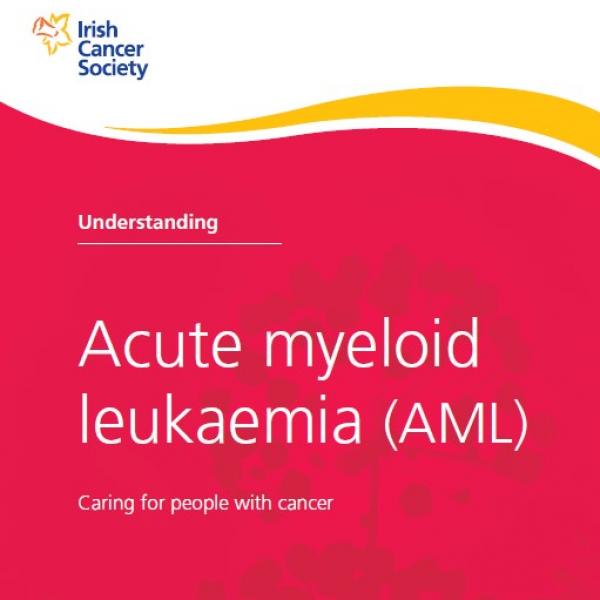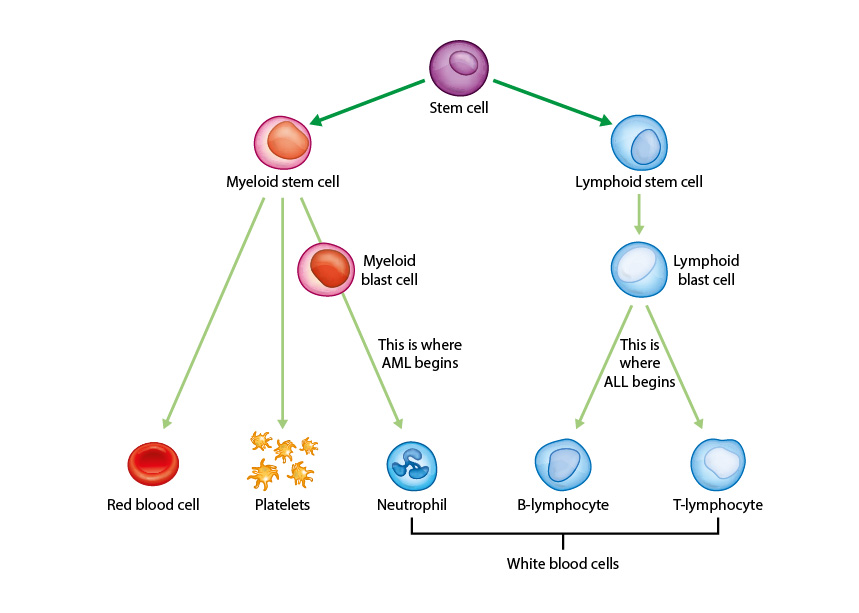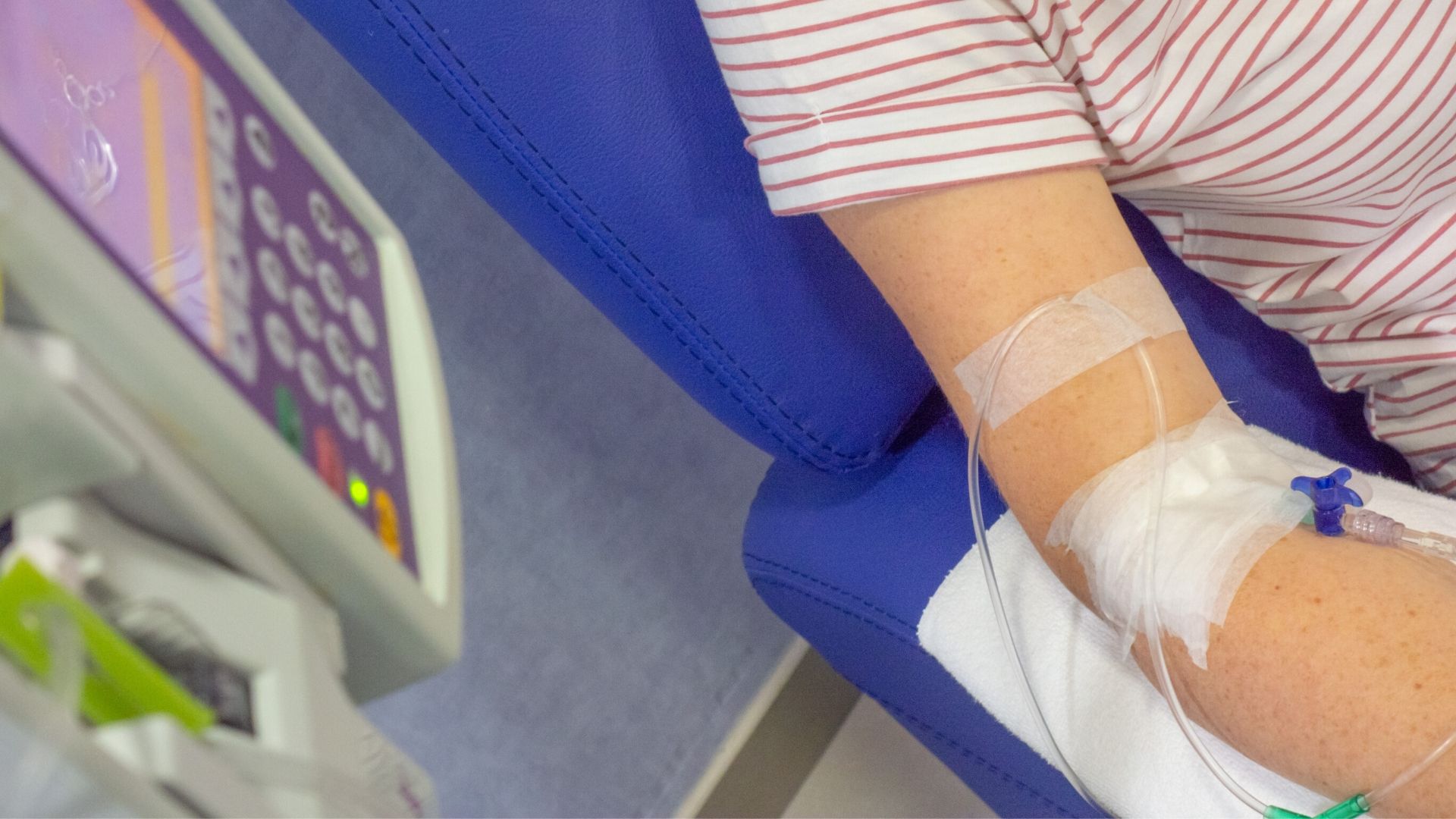
Acute myeloid leukaemia (AML)
Acute myeloid leukaemia (AML) is a blood cancer more common in people aged over 65. Fewer than 150 people are diagnosed with AML every year.
AML can be treated with chemotherapy and radiotherapy, targeted therapies and stem cell transplants.
On this page:
What is acute myeloid leukaemia (AML)?
Acute myeloid leukaemia (AML) is a fast-growing type of leukaemia (cancer of the blood) which affects myeloid white blood cells.
This cancer affects the number of healthy cells in your blood. This can cause problems with fighting infection, carrying oxygen and bleeding.
More information about acute myeloid leukaemia (AML)
More information about AML treatment
Treatment for AML includes chemotherapy, targeted therapies and stem cell transplants. For more information about treatments for AML, visit our treatment page. For specific treatment information use the links below.
Coping with AML treatment and side-effects
Looking for support?
Our cancer support section contains information and advice on coping with cancer for diagnosed patients and their loved ones.

*The Irish Cancer Society uses the most up-to-date cancer statistics from the National Cancer Registry Ireland, available on www.ncri.ie
For more information
Phone
1800 200 700











